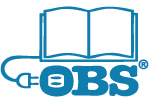I attended my first New England Independent Booksellers (NEIBA) conference in Hartford the other weekend, where many participants bemoaned the drop in the number of attendees. Some said the show used to be twice as big, say ten years ago, when there were many more independent bookstores. Apparently it was much more vital then, before the economy tanked, and the bookselling business started to be dominated by the chains and boxes, and online giants like Amazon.
This made me think that things really not are as they seem: just as Amazon is not really a bookstore after all (they can afford to treat books with all their rich metadata as loss leaders, while aggregating the *real* prize, their buyer profiles), so is the *real* value in an independent bookstore not in the physical book at all, but in what the customer gets for “free” — the knowledge of the bookseller or clerk. That human interface, the local person who reads voraciously and can effectively build a bookstore responsive to a community’s need to know and appetite for literature, who can recommend books to familiar customers, is one wetware casualty of the online chain store revolution that will be most difficult to replace with software, no matter how user friendly.
